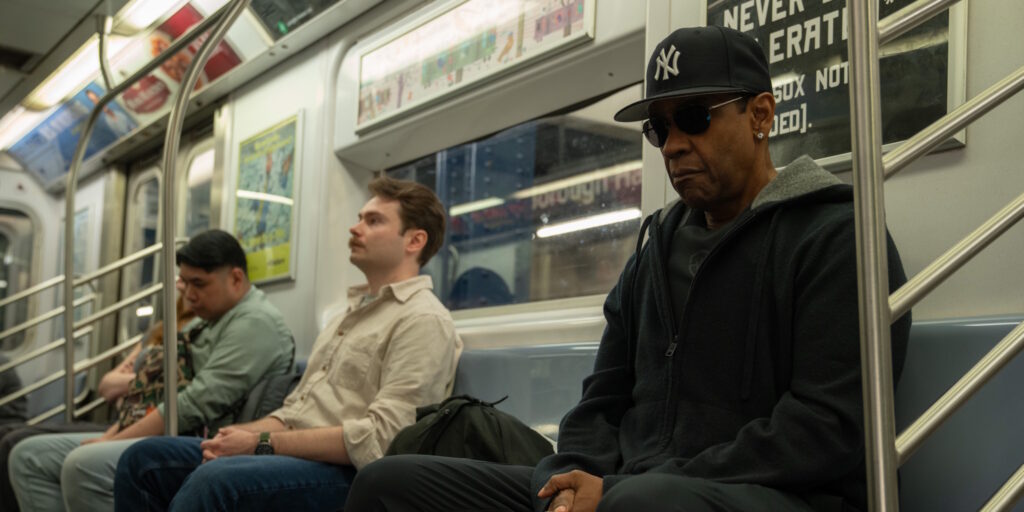Nothing commodifies interpersonal relationships faster than a side hustle. It is one of the most degrading aspects of the gig economy: the drive to transform hobbies into cash cows, pseudoscientific cosmetics into pyramid schemes, and social-media posts into advertisements-in-disguise. It rarely works out as well as it is advertised to the vulnerable individuals who take the bait. Nevertheless, the pool of micro-influencers and multilevel marketers continues to grow deeper, wider, and more treacherous by the day. Lynn (Yao Honggui), a 20-year-old student living in China and the discomforted emotional center of Ji Huang and Ryûji Otsuka’s Stonewalling, is well aware of the trappings of this exploitative industry. This awareness doesn’t make the alternative of a traditional 9-to-5 look any less repulsive, though.
Enrolled in an English school and a flight-attendant training program at the insistence of her boyfriend (Liu Long), Lynn would much rather make a quick buck off the beaten path. While modeling at a pop-up shop, she connects with a fellow model (Mo Zhihong) willing to keep her in the loop for any future gigs. Not long after, her newfound friend fulfills her promise: She knows a place that will harvest human eggs for 20,000 yuan each. Once the prospective subject passes a series of interviews and exams, they’re cleared to sell as many as they’d like. Following a moment of quiet consideration — of which there are numerous in this film — Lynn is all in. That is, until she fails the first round of her physical. Turns out, she’s pregnant.
Though China’s one-child policy was dissolved in 2016 (and only loosely enforced in the years preceding), Stonewalling shows the attitude toward childbearing among the nation’s young professionals is nonetheless restrictive. Lynn’s boyfriend, her parents, and even the employees at the egg-donor clinic encourage her to go through with an abortion until the time is right for a child. However, when Lynn learns of her mother’s debts and the financial gain that could come from birthing the child, it becomes evident that childbirth might be her best shot at instant wealth. Of course, as Lynn will eventually learn, if it seems too good to be true, it probably is. From essential oils to miracle youth serums to patterned leggings to trafficking children, no get-rich-quick attempt ever works out as well in practice as it does in theory.
Despite Ji Huang and Ryuji Otsuka’s film being grounded in Lynn’s day-to-day routine in China, Stonewalling is no less relatable to the average American viewer. Making installment plans, griping over higher-education costs, dreaming of viral TikTok fame, aspiring for a well-paying job that secretly sounds miserable, wondering if a partner had a wealthier upbringing, watching your mother get caught up in an MLM … all are economic anxieties faced by characters and audience alike. The parallel between selling products and selling bodies is discernible long before the full extent of the film’s plot is revealed. It’s a testament to the filmmakers’ strengths: The universal is evoked through careful observation of the highly specific. Long-range static shots strategically propped up against intimate, close-up angles, sparse dialogue peppered with awkward silences, and the occasional touch of dry humor blend together to paint a truly special, singular portrait that doubles as a mirror.
Accordingly, audiences end up as stonewalled as Lynn. The film’s 148-minute length may seem surprising given the relatively straightforward plot, but it serves an important purpose. (For all Stonewalling has to say about modern young womanhood, suffocating societal expectations, frustrating broken systems, and the triangular trap that these factors form, those held rapt by the film would surely sit for twice that running time.) The runtime emphasizes the drawn-out process of the pregnancy and all the complications it has brought to the main character, her family, her loved ones, her career, and so on. As such, the dramatic deflection used by husband-and-wife pair Ji Huang and Ryuji Otsuka gets sharper as the film proceeds. Every dead end, every last-ditch effort, every course reversal hits harder than the one before it. Even the obligatory roping-in of the Covid-19 pandemic that all grounded, contemporary-set films include as of late feels appropriate in a story about putting life on pause. In other words, the meandering — which some critics have thrown out as one of the film’s major faults — is very much the point. And what a point it makes.
Stonewalling screens nightly at 7:30 p.m. from May 26 – 28 at the Webster University Film Series.




